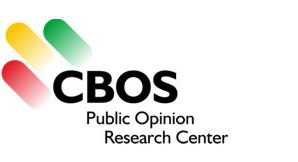12/2022
2022-04-15
CBOS special edition newsletter in Polish and Ukrainian: please pass it on – to your Ukrainian friends in particular.
Should the European Union Bring in an Embargo on Russian Oil and Gas?
An embargo on energy resources is among those sanctions that will hurt Russia most. For now, the European Union has confirmed a ban on coal imports from Russia (from August 2022), but the call to bring in an embargo on Russian oil and gas is creating substantially more controversy among the nations of the EU. This move has the rather unequivocal support of public opinion in Poland, with a total of four fifths of those surveyed (80%) being in favour of blocking imports of Russian oil and gas. Only 9% are against.
Of the people in favour of an EU embargo on Russian oil and gas, an overwhelming majority (93%) continue to support this move even if it will come with an increase in prices.
Чи Європейський Союз повинен ввести ембарго на російську нафту та газ?
Переважна більшість респондентів (93%), що підтримує введення Європейським Союзом ембарго на російську нафту та газ, заявляє, що продовживатимуть підтримувати цей крок, навіть якщо він буде пов’язаний із підвищенням цін на енергосировину.

|
More on this subject in the CBOS report.
This ‘Current Events and Problems’ survey (384) was conducted using a mixed-mode procedure on a representative sample of named adult residents of Poland, randomly selected from the National Identity Number (PESEL) register. Respondents independently selected one of the following methods: Computer Assisted Personal Interview (CAPI); - Computer Assisted Telephone Interview (CATI), respondents receiving researchers’ telephone numbers in an introductory letter from CBOS; Computer Assisted Web Interview (CAWI), where respondents filled in the online questionnaire independently, gaining access by means of a login and password provided in an introductory letter from CBOS. In all three cases the questionnaire had the same structure and comprised the same questions. The survey was carried out between 28 March and 7 April 2022 inclusive on a sample of 1030 people (54.8% using the CAPI method, 28.3% CATI and 16.9% CAWI). CBOS has been conducting statutory research using the above procedure since May 2020, stating in each case the percentage of personal, telephone and internet interviews.





